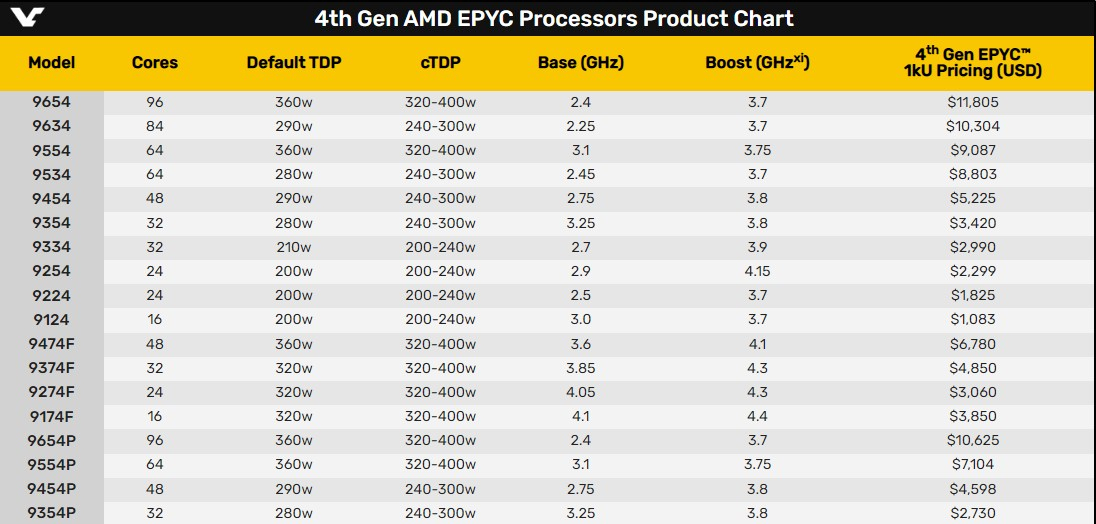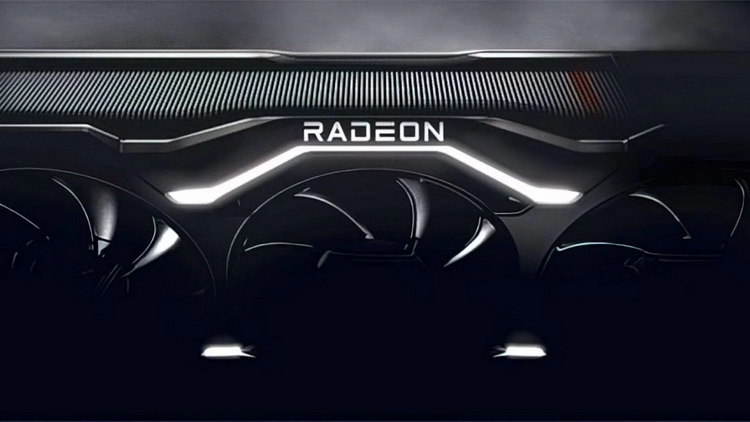
AMD has officially introduced EPYC 9004 series processors codenamed Genoa for servers and data centers.They feature up to 96 high-performance cores on the Zen 4 architecture.According to AMD head Lisa Su (Lisa Su), the number of transistors in chips Genoa is 90 billion, AMD itself describes new products as processors with unsurpassed performance, advanced energy efficiency and next-generation architecture.Image source: AMDThe Genoa processors include twelve 5-nm chipset CCD with compute cores and one 6-nm chip with I / O interfaces.Each processor core has 1MB of L2 cache memory, twice as much as the previous generation EPYC chips on the Zen 3 architecture.There is also 32 Mbytes of Layer 3 cache per CCD chip. The new Genoa EPYCs support up to 6 TB of 12-channel DDR5-4800 RAM, 128 lanes of PCIe 5.0 interface.Although with the latter AMD is undecided, as during the presentation figure of 160 lines sounded.In addition, support for CXL 1.1 and partly CXL 2.0 is claimed for the processors, which provides significant memory expansion capabilities for data center applications.Note here that AMD has changed CPU socket for server chips: SP3 is replaced by SP5. AMD claims EPYC Genoa has 14% more instructions per clock (IPC) than last generation solutions at the same TDP.At the same time the performance of new chips per watt of power consumption in some tasks increased by up to 2.7 times compared to predecessors based on Zen 3.Support for new instructions, such as AVX-512, is also noted. In cloud computing tasks the performance of new chips is up to three times faster than competitors.And in a direct comparison of the performance per core, EPYC Genoa are up to 55% faster than Intel Xeon processors.Although the question is about 3rd generation Xeon Scalable, which is now the actual Intel's - presented yesterday Xeon Max on the new architecture will be available only in January. All in all AMD has presented 18 models of EPYC Genoa processors, conditionally divided into different segments for specific tasks.For HPC and cloud segment manufacturer has provided chips with 48 to 96 cores and TDP from 280 to 360 W.High-end models with 16 to 48 cores and TDP from 320 to 360W will be offered for corporate sector.For small business, the company will offer 16 or 32 cores and TDP from 200W to 280W. Source image: VideoCardzBasic clock speeds range from 2.25 to 4.1 GHz, and Boost speeds from 3.7 to 4.4 GHz.Note that a number of models support a TDP setting of up to 400W.As for prices, they range from $2,730 to $11,805 for a processor in a batch of 1,000 units. As part of the presentation, AMD paid special attention to the energy efficiency of the new Genoa processors, noting the significant increase in server system maintenance costs per kilowatt of power consumed over the past year.AMD claims EPYC Genoa-based systems will cost significantly less to maintain than systems based on competitive solutions.AMD's chips are up to 52% more energy efficient than its competitors. AMD EPYC Genoa processors will be available starting today.The company also recalled that it plans to release cloud-optimized EPYC Bergamo processors in the first half of 2023.These processors will get up to 128 cores (and 256 threads), as promised earlier, keeping compatibility with the SP5 socket. EPYC Genoa-X processors with additional cache will also be available in the first half of next year.Like Milan-X, they will be oriented to a specific class of workloads, which benefit from the increased available cache size.These are, for example, computational tasks and DBMS.And in the second half of next year, AMD will expand its range of Zen 4 server processors with Siena chips.They will be optimized in terms of energy efficiency and offer up to 64 cores.


0 Comments